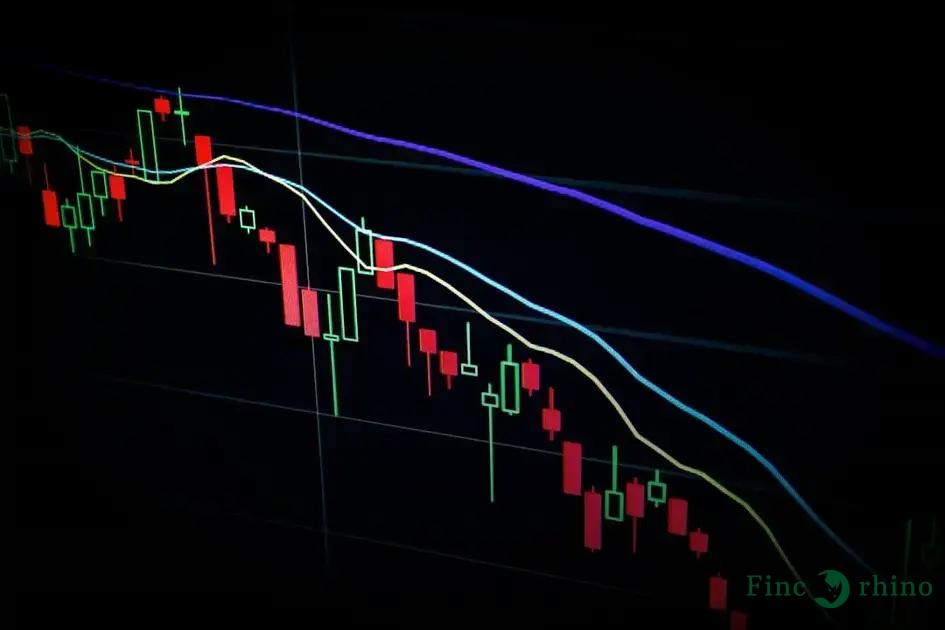Investing in cryptocurrencies offers great potential, but managing these digital assets securely is crucial. Learn how to safely store crypto assets by understanding various protection strategies, choosing the right wallets, and implementing security measures to prevent hacks and losses. This guide provides essential tips for safeguarding your investments effectively and avoiding common pitfalls.
Understanding the Basics of Crypto Security
Crypto security is crucial for anyone holding digital assets. Understanding the basics involves recognizing that cryptocurrencies rely on blockchain technology for security. This decentralized ledger is difficult to hack, but the way users handle their crypto can introduce vulnerabilities.
Private keys are the most important element of crypto security. They are unique strings of characters that grant access to the funds in a wallet. If someone gains access to these keys, they effectively control the assets. Protecting private keys from unauthorized access is essential.
The importance of strong passwords cannot be overstated. Using a complex mix of letters, numbers, and symbols adds an extra layer of protection. Avoid using easily guessed passwords such as birthdays or common words. Consider using a password manager to keep track of complex passwords securely.
Another fundamental concept is understanding the types of wallets available and which is the most secure option for your needs. While hot wallets that are connected to the internet provide convenience, they are more susceptible to attacks compared to cold wallets that are offline.
Backup your data
Backing up wallet information can prevent total loss of funds if a device is lost or damaged. Keeping backups in a secure location, like a safety deposit box, is recommended. Using encrypted backups further ensures that the stored information is protected against unauthorized access.
Being aware of phishing scams is also vital. Cybercriminals often impersonate well-known companies to trick users into divulging their private keys or other sensitive information. Always verify website URLs and never click on suspicious links.
Lorem ipsum dolor sit amet, consectetur adipiscing elit, sed do eiusmod tempor incididunt ut labore et dolore magna aliqua. Use multifactor authentication wherever possible to add an extra layer of security to your accounts.
Choosing the Right Wallet for Your Coins
Selecting the ideal wallet for your cryptocurrency involves understanding the distinct types available and their respective security features. Hardware wallets store your coins offline, offering protection against online threats. They are considered one of the safest options as they are less susceptible to hacking and malware.
Software wallets, on the other hand, provide ease of access and are ideal for frequent trading. These include mobile apps and desktop programs, convenient for everyday use but require vigilance with device security.
For newcomers, online wallets might seem appealing due to their user-friendly nature. However, they store your data on the cloud, rendering them more vulnerable to cyberattacks than offline options. This vulnerability necessitates the use of robust passwords and additional security layers, like two-factor authentication.
Lastly, consider paper wallets, which are a secure way to store your keys offline. They are immune to online threats but require careful handling and storage to prevent physical damage or loss. Evaluating your specific needs and usage habits will guide you to the most suitable wallet choice, ensuring your assets stay secure.
Two-Factor Authentication: An Extra Layer of Security
Implementing two-factor authentication (2FA) stands as an effective step to bolster the security of your crypto assets. This method requires not only your password but also a second factor, typically a code sent to your phone, to access your account. This extra layer of security significantly reduces the risk of unauthorized access, as potential hackers would need access to both your password and your physical device.
Consider using apps like Google Authenticator or Authy for generating these codes. They are more secure than receiving codes through SMS, which can be vulnerable to SIM-swapping attacks. For added protection, enable 2FA on all platforms you use to manage your crypto, including exchanges and wallets, ensuring that each step of interaction with your assets benefits from enhanced security.
Two-factor authentication’s usability and effectiveness make it a vital component of a comprehensive crypto security strategy. By applying this method systematically, along with strong encryption practices and secure storage, you actively mitigate the risks associated with unauthorized access and potential theft of your assets.
Physical Security Measures for Digital Assurances
To ensure the safety of your crypto assets, it’s essential to focus on physical security measures. While digital security often takes the spotlight, ignoring the physical aspect can leave your valuable coins vulnerable to theft. First, consider storing important hardware wallets or private keys in a safe place. This could mean using a safety deposit box or a personal safe at home that is fireproof and waterproof.
Next, control access to these storage locations. Make sure only trusted individuals know how to access them. Limiting the number of people with access reduces the risk of unauthorized usage.
Don’t overlook the importance of surveillance. Install security cameras to monitor the area where you store your crypto wallets and keys. This adds an extra layer of protection by deterring potential intruders and providing evidence in case of suspicious activities. Motion detectors can further enhance your security setup by alerting you to any unexpected movements around your storage area.
In addition to physical barriers, consider security personnel if you hold significant amounts of crypto assets. This could be in the form of a professional security service which can provide 24/7 monitoring and immediate response in case of an attempted breach.
Remember, the blend of robust digital security protocols with comprehensive physical measures creates a formidable defense against both online and offline threats to your crypto holdings. It’s essential to continually assess and update your security practices to stay ahead of potential threats.
Regular Software Updates: Why They Matter
Maintaining the most up-to-date version of software is vital in the fast-paced digital world, particularly when handling crypto assets. Cybersecurity threats evolve continuously, and software developers regularly release updates to counter new vulnerabilities. These updates often include patches that fix security flaws and enhance overall functionality.
When storing cryptocurrency, using software that is up-to-date is non-negotiable. Outdated versions of wallets or related applications can be easily exploited by hackers. This leads to critical breaches that may result in the loss of your digital assets. Users must stay informed about new releases and apply updates promptly to guard their holdings.
Furthermore, developers might include additional protection features in updates, providing enhanced ways to safeguard your assets. Setting up automatic updates where possible, and regularly checking for manual updates, ensures your software stays capable of fending off newly discovered cyber threats.
Ignoring software updates is a common mistake that can have severe consequences. The digital currency world demands proactive measures to secure your investments – and keeping your software current is one of the simplest yet most effective strategies.
Common Mistakes to Avoid When Storing Crypto
- Neglecting Backup and Recovery: One of the most common mistakes is failing to back up your wallet’s private keys or seed phrases. Ensure you have a secure and offline record of these critical access points.
- Ignoring Two-Factor Authentication: Always enable 2FA for an additional layer of protection, particularly on exchanges and wallets that support it.
- Choosing the Wrong Wallet: Not all wallets are created equal. Make sure the wallet you use suits the type of crypto you are storing, be it hardware, paper, or online wallets.
- Poor Password Practices: Weak passwords can be easily cracked. Use strong, unique passwords and consider a password manager.
- Skipping Regular Updates: Regularly update your wallet software to patch any vulnerabilities and ensure you have the latest security protocols in place.
- Sharing Sensitive Information: Keep your private keys and passwords to yourself. Never share them, even if someone asks claiming they need it for verification purposes.
- Storing Everything Online: Avoid keeping all your crypto assets in online wallets. Distribute them between cold and hot wallets according to your usage needs.





